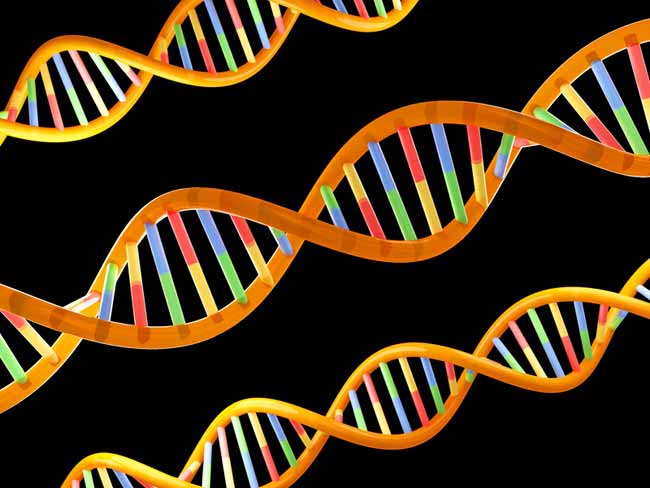FDA Cracks Down on Commercial Genetic Testing

The Food and Drug Administration was busy last Friday, sending out letters to five companies that sell genetic tests directly to consumers.
The tests, which cost upwards of $1,000, are supposed to assess genetic variations in your genome, or DNA, and tell you whether you are at a higher or lower risk of getting a handful of diseases, such as diabetes or prostate cancer.
The FDA, in one of its classic "uh-maybe-we-ought-to-start-regulating-this-stuff" flashes of insight, informed the companies that their tests are medical devices and must gain regulatory approval before they can be marketed.
But the FDA was just digging for any excuse to reign in this fast-growing and reckless industry. The reality is that these tests remain as feeble as they were when they first hit the market nearly a decade ago, as most medical researchers and genetics experts will attest.
That is, commercial genetic tests are no better at predicting your future than a set of tarot cards. Worse, they can provide you incomplete or even incorrect information that can lead you to make poor health decisions or have a false sense of security.
You're right to throw away cash
You can say you have the right to know your genetic destiny. What's delivered to your door, however, will be a set of vast unknowns with which you are to map your future.
Get the world’s most fascinating discoveries delivered straight to your inbox.
We are still at a stage of embarrassing ignorance when it comes to the genome. Every serious scientist knows this, and the leaders of the genomic revolution — such as Nobel laureates James Watson and Paul Nurse and Nobel contenders Eric Lander and Craig Venter — have each expressed caution over the current availability of genome-mapping for the masses. The reasons are many.
- Scientists know about 200 genetic risk factors for disease; these are combinations of genes thought to raise or decrease your risk for a few diseases. There's much uncertainly and absolutely no causality here. For the majority of test results, environmental factors, such as diet and exercise, will dominate any true risk for developing disease.
- Even if a special gene offered a protective edge in a study of 30,000 white males, as reported in the Journal of Such and Such, this same gene might offer no protection in your body because of the complex and unique interactions of that gene in your genome.
- Companies already have erred. One of the five companies receiving an FDA letter, the Google-funded 23andMe, might have sent the wrong genetic information to as many as 96 of its customers, according to The New York Times.
- Should bad news come your way, there's little genetic counseling. Legal questions abound, too, such as whether you must disclose information from your test to a company offering medical or life insurance.
Game of life
Of course, companies selling genetic tests offer the disclaimer that the test results are for "informational" purposes, not to serve as medical diagnosis — just as football pools are for entertainment purposes only.
Doctors know — and have fretted for years in the pages of medical journals, most recently in the May 27, 2010, issue of the New England Journal of Medicine — that recipients of genetic tests results will march into their offices and ask what can be done about the reported "x"-percent elevated risk in this cancer or that. And the answer will be, "I haven't a clue."
The potential for genetic testing is boundless. We soon may enter an era of personalized medicine, when therapies are chosen based on your unique genetic composition. But we aren't there yet. We're not even close.
What we do know is only the obvious, for example, genes clearly responsible for debilitating diseases such as progeria or cystic fibrosis. We know the gene mutations, and we are attempting to find cures. And that's great.
But we do not know the genes causing chronic diseases such as diabetes, heart disease and cancer aside from the ones that manifest a disease early in life, before age 30. If, for example, you have the mutated APC gene that causes familial adenomatous polyposis and a 100-percent chance of developing colon cancer, you will know this before you have earned enough money in life to afford a commercial genetic test.
The FDA has not requested that the commercial genetic tests be removed from the market. But a similar letter in May to Pathway Genomics prompted Walgreen drugstores to cancel plans to sell this company's genetic test kit. Ultimately the compromise between FDA and industry might be clearer language about the limitations of genetic testing.
Knowledge is empowering only if it can be understood.
Christopher Wanjek is the author of the books "Bad Medicine" and "Food At Work." His column, Bad Medicine, appears each Tuesday on LiveScience.

Christopher Wanjek is a Live Science contributor and a health and science writer. He is the author of three science books: Spacefarers (2020), Food at Work (2005) and Bad Medicine (2003). His "Food at Work" book and project, concerning workers' health, safety and productivity, was commissioned by the U.N.'s International Labor Organization. For Live Science, Christopher covers public health, nutrition and biology, and he has written extensively for The Washington Post and Sky & Telescope among others, as well as for the NASA Goddard Space Flight Center, where he was a senior writer. Christopher holds a Master of Health degree from Harvard School of Public Health and a degree in journalism from Temple University.


